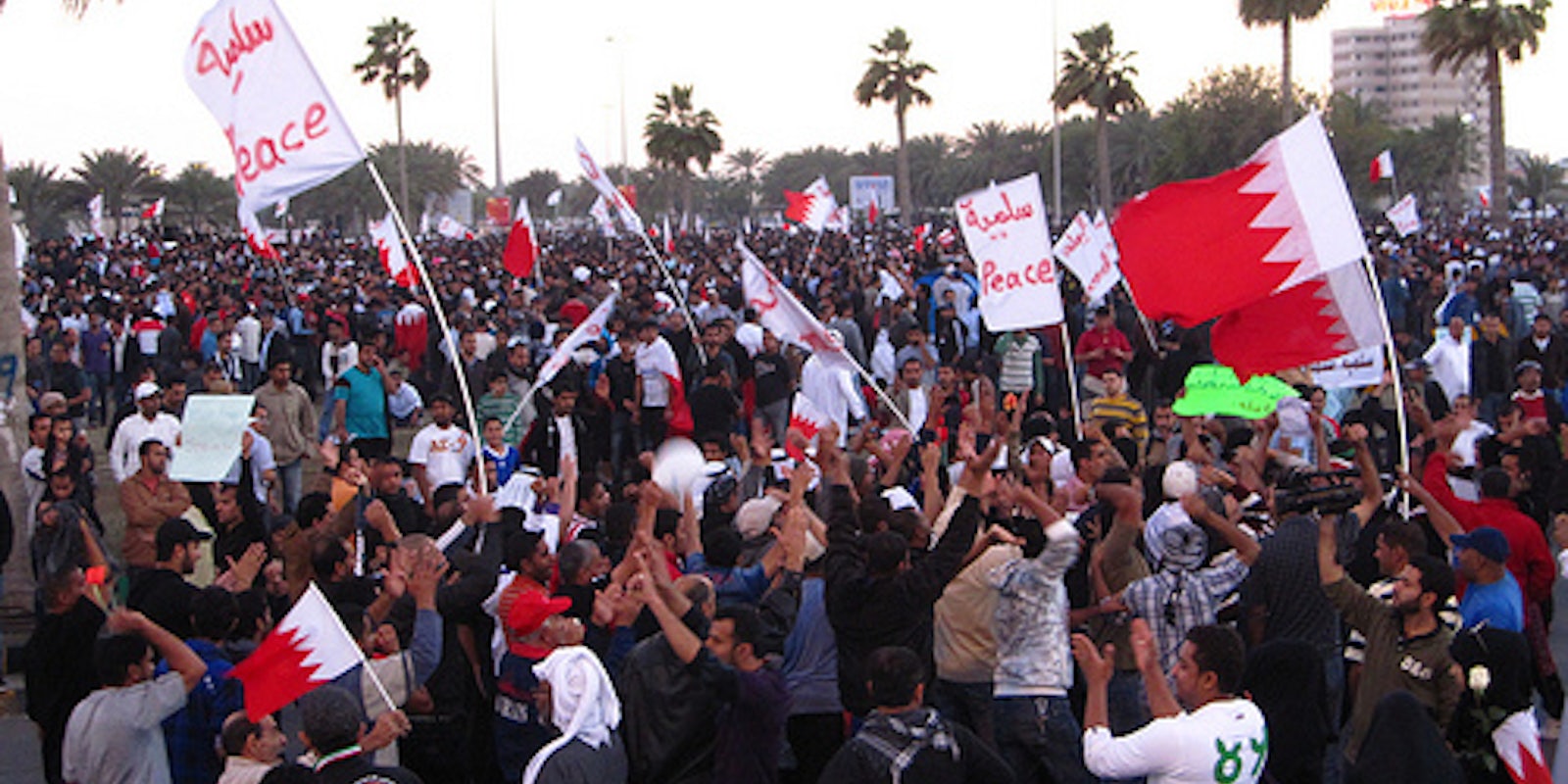In the eternal quest of the authoritarian dummy to miss the point at every pass, the government of Bahrain has banned the Guy Fawkes mask, which protesters in the Gulf nation often wear to disguise their identity.
Citing “public safety,” Bahrain has made importation of the “revolution masks” illegal, according to a statement released by the Bahraini Ministry of Industry and Commerce, quoted in Beirut-based Al Akhbar.
Guy Fawkes masks have been made popular by the hacktivist collective Anonymous, assuming the role of a mascot or symbol for the group. They have proven very popular in Arab Spring protests, where participants have used them to obscure their faces while marching and taking part in other actions.
The ruling, signed by Industry and Commerce’s Hassan Bin-Abdallah Fakhro, ruled that it “is prohibited to import the ‘Revolution Mask’ or anything similar to it that conceals the face” and “It is up to the secretary of the Ministry of Trade as well as all who specialize in the kingdom’s ports—each with their own jurisdiction—to execute this decision and to do so beginning at the date of its publication and to publish it in official newspapers.”
Bahrain has been convulsed with Arab Spring protests for two years, much of its public protests taking place in the Pearl Roundabout traffic feature in the capital city of Manama. (The monumental pearl sculpture, honoring the country’s pearl industry, was destroyed and, soon after, the roundabout itself was removed.)
The Bahraini government has even imported Saudi Arabian troops to help violently suppress public expressions of dissatisfaction.
The Bahraini ruling family, in whom a disproportionate amount of the country’s wealth and power inhere, belongs to the Sunni branch of the Islamic faith while the majority of the population is Shia. Bahrain, like most Gulf countries, imports significant numbers of South Asian workers, whom many believe are accorded second-class status.
All of these issues have boiled up during the protests.
The Gulf country has seen arrests (including of doctors who have treated protesters), shootings, renewed censorship, martial law and a state of emergency.
The mask is based on a 17th-century pro-Catholic English revolutionary who took part in the “Gunpowder Plot” to assassinate the King and restore Catholicism. Although used in the celebrations of “Guy Fawkes Night” in England, it was better known worldwide after the debut of the 2006 film V for Vendetta.
The neighboring Gulf nation of the United Arab Emirates banned the masks last November.
As with all such bans, blocks, and criminalizations, it mistakes the forest for the trees. If banning one material element of a national protest that has taken root in virtually every element of a society could end that protest, there would be no protests.
Perhaps by banning the masks, the government officials in Bahrain are just trying to look busy, even as nothing much is done.
Photo by Al Jazeera English/Flickr


